How to Know If You Need Coaching or Feedback Training… or Both!

Investing in organization or management-wide coaching or feedback training is no small undertaking. It requires employees’ time, a financial investment and a commitment to following through with the philosophy or process being taught, so it’s important to choose the right one for your specific goals. A challenge HR departments and Learning and Development professionals run into time and again is understanding which one of these two things they need because each individual trainer or method may define them differently. Not to mention the wide variety of programs on the market, and the amount of overlap that exists.
So, the first step, and arguably the most important, is to start with clear definitions of coaching and feedback. Without clear definitions, the rest of the process could be skewed.
Definations of coaching can vary from simply giving advice, to consulting, to personalized and professional one-on-one coaching with the goal of career development. HBR notes that according to Sir John Whitmore, a leading figure in executive coaching, the definition of coaching is “unlocking a person’s potential to maximize their own performance. It is helping them to learn rather than teaching them.”
In essence, there’s a lot of advice out there about how to coach properly, but all of it presumes a specific definition of what coaching means. If your view of coaching, and your corresponding organizational goals, don’t align with that of the person giving the advice, you may end up training on practices that don’t have the desired effect. That’s why it’s important to be precise in the definitions.
Of course, choosing a coaching or training program that isn’t the perfect fit isn’t usually going to do damage to your workforce, but it can cost your bottom line by wasting time and training dollars and it can also turn people sour to the idea of learning and development in the workplace when they don’t see the outcomes they had hoped for. So, let’s dive into these two terms to help determine where your investment is best spent.
Coaching
From our experience working with hundreds of companies to enact a variety of organization-wide training programs, we have found that the word “coaching” tends to be the slipperiest when it comes to one clear definition. In fact, we’ve seen so many different perspectives on what coaching means that we’ve lumped it into four categories that fall along a spectrum of directiveness.




While other folks in the industry may not use these specific terms to describe what they mean by coaching, it’s a helpful way to look at it when researching and determining what’s best for you.
Feedback Training
Feedback training doesn’t lack the clarity that the term coaching does. There are different models and perspectives out there, certainly, but one fundamental aspect of feedback is clear: it is, by nature, directive. With that in mind, looking back at the spectrum you can see where feedback skills are going to be more critical.
If your ultimate goal is to help people be better at their jobs and get tasks done – feedback training may be your answer. In some cases, feedback training can work hand-in-hand with an approach like performance coaching. In other cases, like counseling and directive coaching, feedback training may be able to replace coaching all together. In situations where the goal is for managers to take a more broad-based look at how capable employees are at their jobs or if someone needs help with their own career growth, feedback may not be the best fit.
“There are different models and perspectives out there, certainly, but one fundamental aspect of feedback is clear: it is, by nature, directive.”
Ask Yourself These Questions
To recap, the first step to determine what type of development intervention you need is to ask yourself what your employees need. Do they need help figuring out where they belong inside a large corporation? Do they need help thriving in their current position? Do they need temporary help to overcome a specific issue they’re struggling with? Or do they need help getting daily tasks done in an effective way? Once you can identify the specific need, you can research programs with more focus and quickly eliminate ones that don’t fit the bill.
One final piece of advice: beware of programs – coaching or feedback focused – that claim to be able to solve all of these issues. The root of each of them is quite different, and it would be difficult for one method, person or program to address all of them. Look for a program that is laser focused on your biggest need, even if that seems narrow, because it will likely give you the highest return on your investment.


